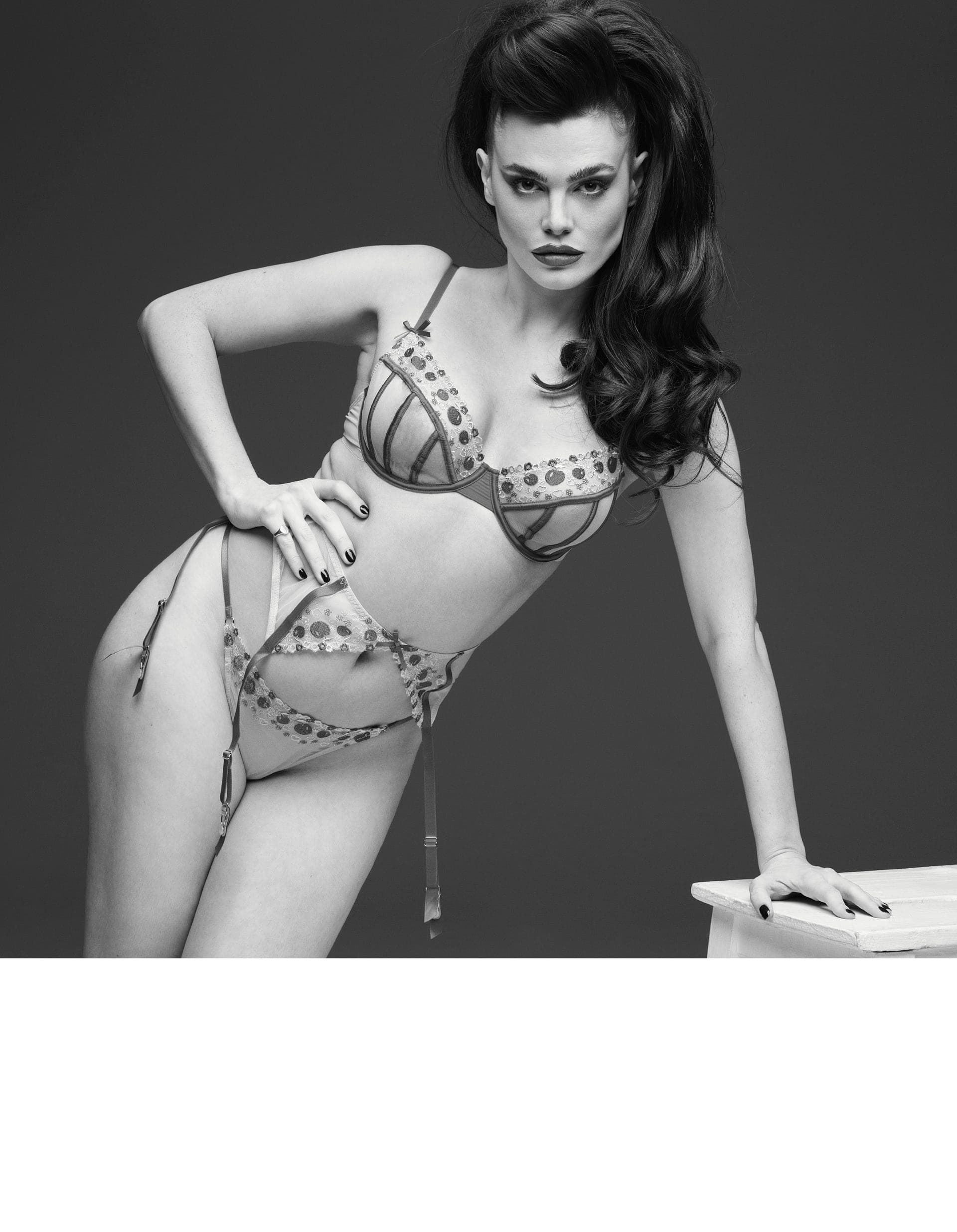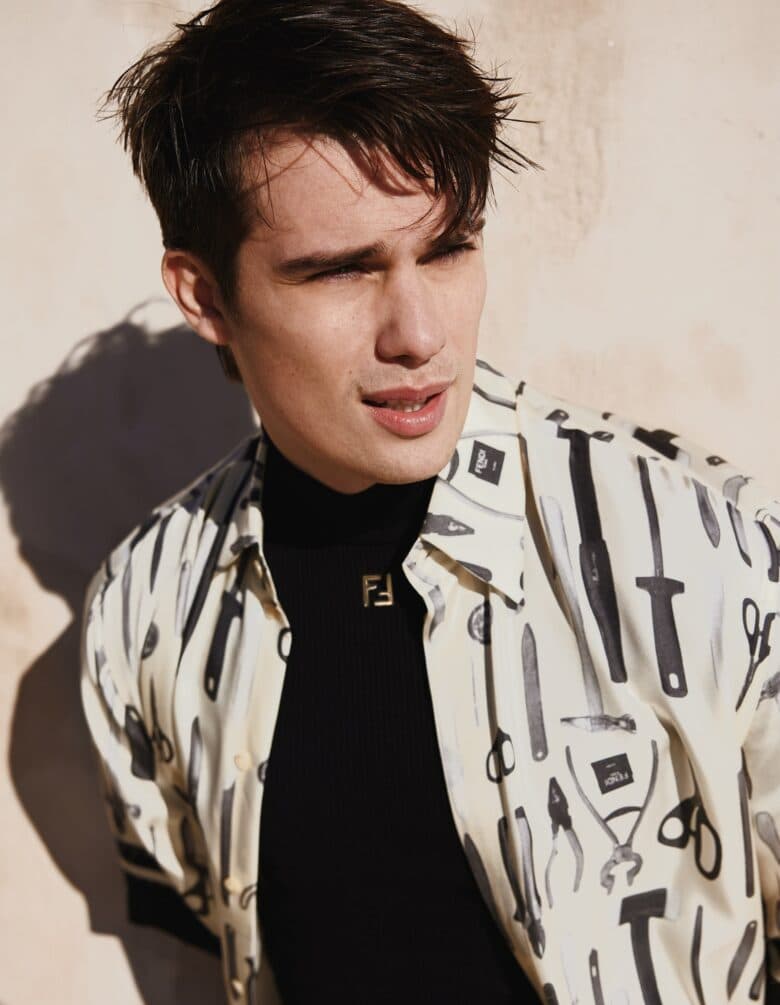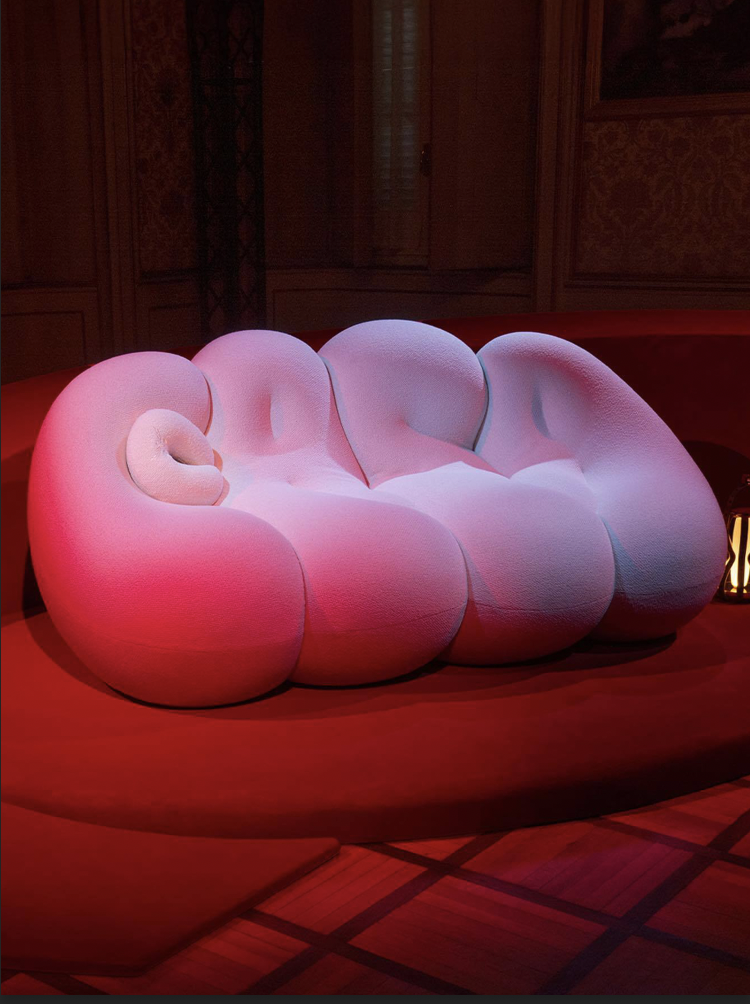Charli Howard
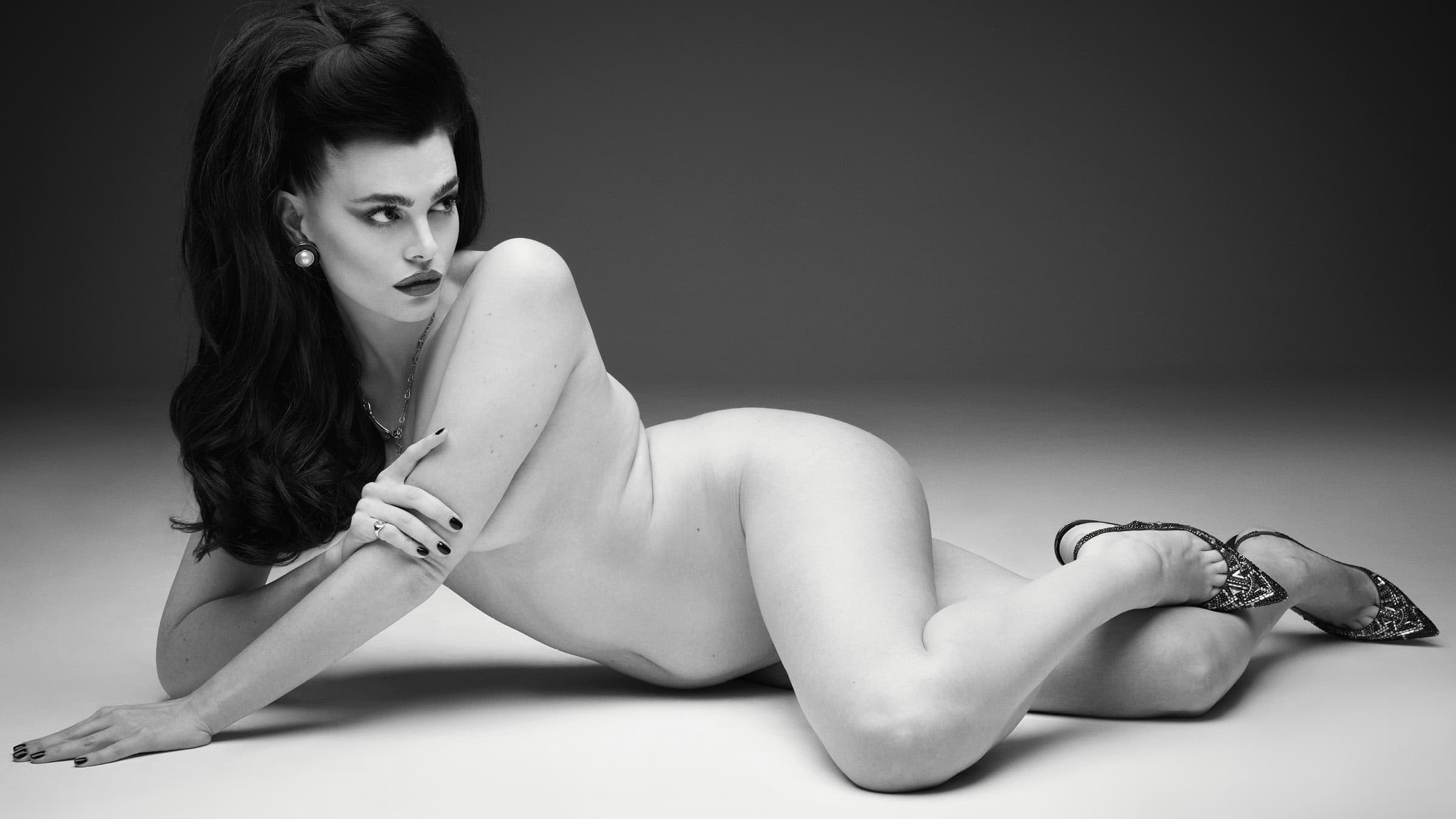
Back in 2015, Charli Howard tilted the spotlight onto the state of the fashion industry. After being dropped by her agency for being “too big”, she shared an open letter on Facebook, which quickly went viral. What followed was a string of TV and magazine interviews giving Howard the opportunity to highlight the lack of representation when it comes to women’s bodies in the fashion industry. Her candidness on the matter has gained her an ever-burgeoning fan following of women who stand by her message that thinness is not a measure of beauty, and that there should be room for women of all sizes to feel seen in the mainstream media.
As she continues to excel with her very own ethical beauty brand Squish, we sit down with Howard as she reflects on the state of the industry now, and what beauty really means to her.
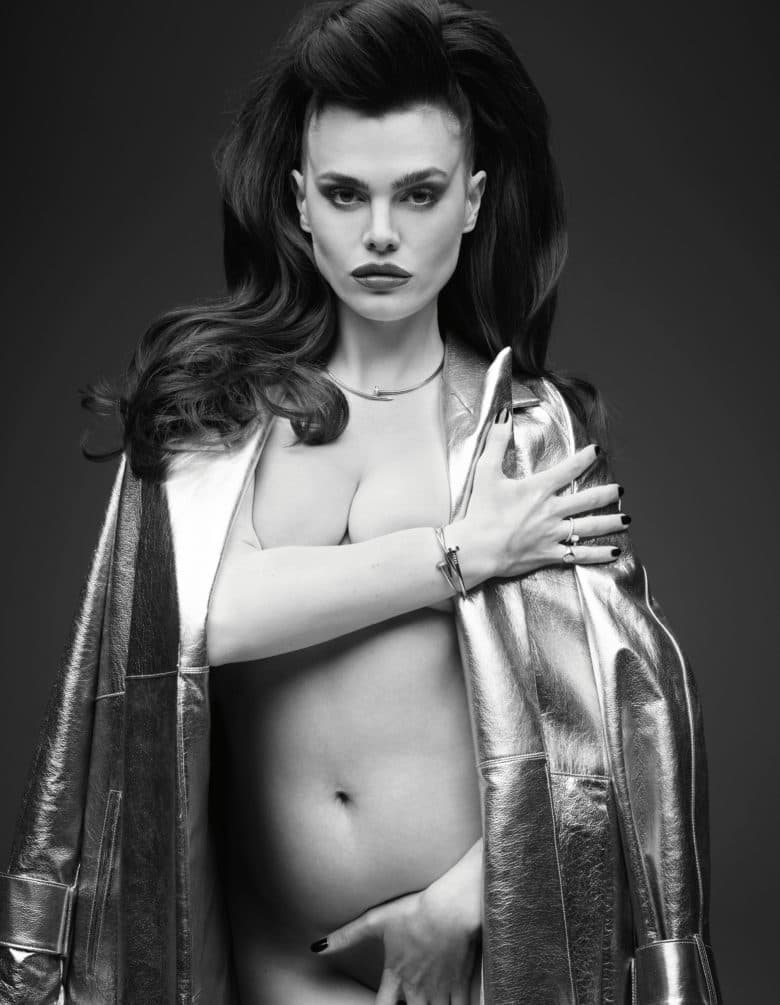
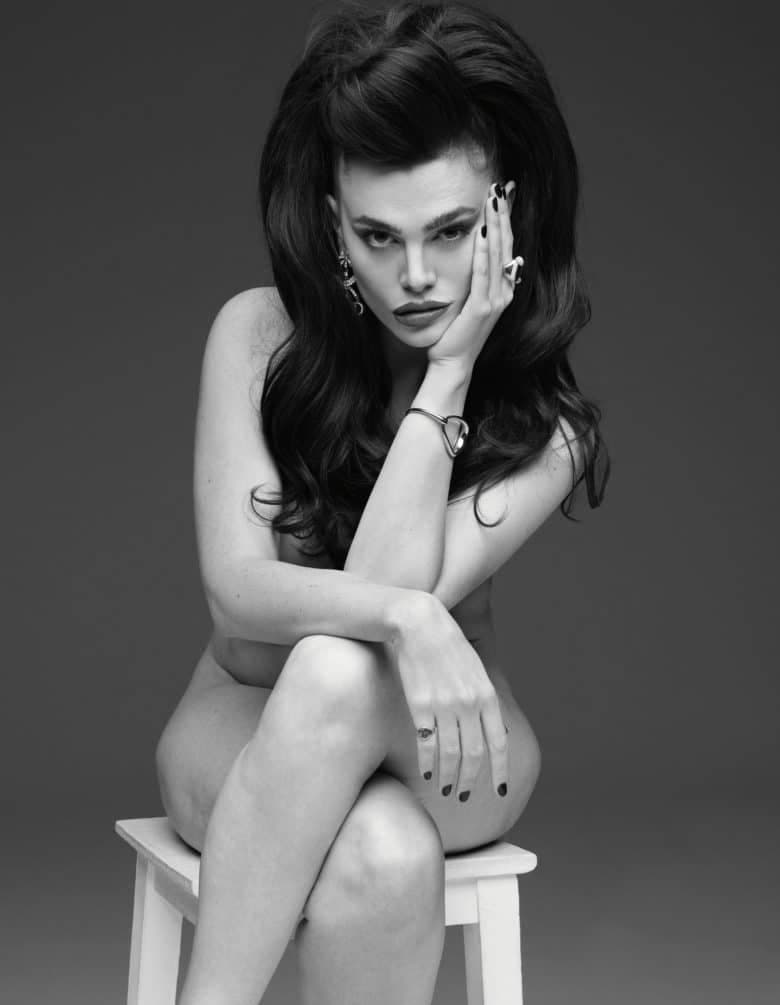
Ryan Cahill: To start with, I wanted to say that from an outsider’s perspective, reading about the journey that you have been on, both in life and career, it feels like you’ve now reached a place of contentment. Would you agree?
Charli Howard: I think it goes in waves. Sometimes you feel really good about yourself and sometimes you don’t feel good about yourself, that’s just human nature. I think it is sometimes important to embrace those bad days because you need to really feel things and know why you feel a certain way. I do feel content with my body for the first time ever. I have come to [a place of] acceptance. I think we just need to give ourselves more of a break, not every day is going to be perfect. I have amazing days where I feel really content with who I am, but obviously I get some days where I’m like, ‘fuck this!’. On the whole I am really happy and I think a lot of that comes down to not caring what people think.
RC: That’s amazing.
CH: Worrying about what people think is honestly such a mental block because once you stop giving a shit, your life changes. Your world changes once you stop seeking people’s approval. I don’t feel like I need to impress tons of people. I’m doing my own thing.
RC: You mentioned that you still have shit days, and you have elements of self-doubt. How do you handle those? Do you have methods to manage that?
CH: You’re going to get days when you have highs and you’re gonna get days where you have lows, but on the whole, life is a very straight and narrow path. You have to embrace the bad days with the good days. I used to think that life was about having these highs all the time and that if I wasn’t having these highs or these accomplishments, then things were going wrong, and that isn’t right either. Most days are quite mundane, but if you realise that some days are going to be bad, some are going to be good, that puts things into perspective a bit as well.
RC: You have to have those mundane days in order to fully appreciate the good ones. You spoke about toxic positivity, tell me a bit about what you’ve learned about that. As someone that has quite a large following, I guess it’s good for people to see both sides of your life: good and bad.
CH: Instagram is just a false version of your life. It’s all the best bits, the highlights reel of your life. No one ever posts pictures of themselves looking like shit when they’re hungover or crying because they’ve been dumped, it’s really about putting out this image. If you are dumped, then you want to put out that you’re having an amazing time and that is false positivity. In life, I think there is this very new-age idea of constantly being happy. It’s a lot of pressure to put on yourself, but I have read studies where this can do more harm than good because when you’re trying to suppress those emotions and feelings that you’ve got, you’re not really listening to yourself and I’m at a stage now where if I have a bad day, I try and understand why. If I have a good day, I understand that it is not going to be permanent. I think there’s this world of needing to constantly put on a show and this happy facade and that is not always the best thing. I think it is great to be an optimist, and it is good to try and see the best, but it’s also OK to sometimes not feel that way.
RC: Speaking of your Instagram, I sat and read through some of the comments yesterday. Obviously there are a lot of people that look up to you, and they feel seen via your Instagram. Looking at these comments suggests that in popular culture, there’s not many realistic representations of varying body types. Do you think that is concerning, and do you think that is improving?
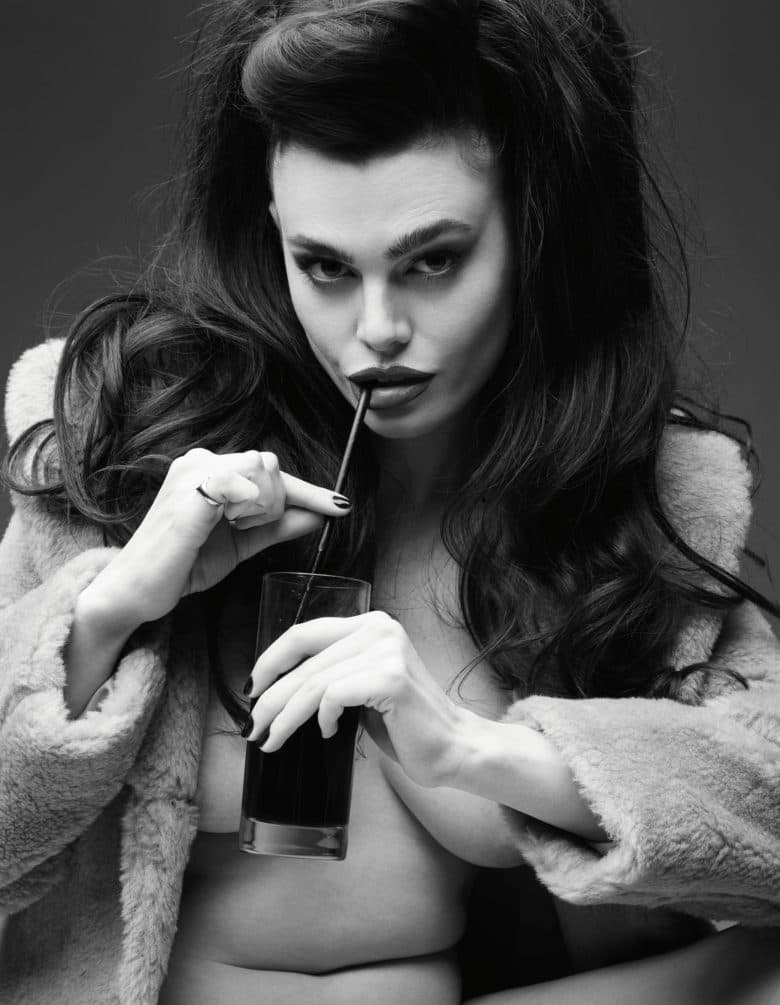
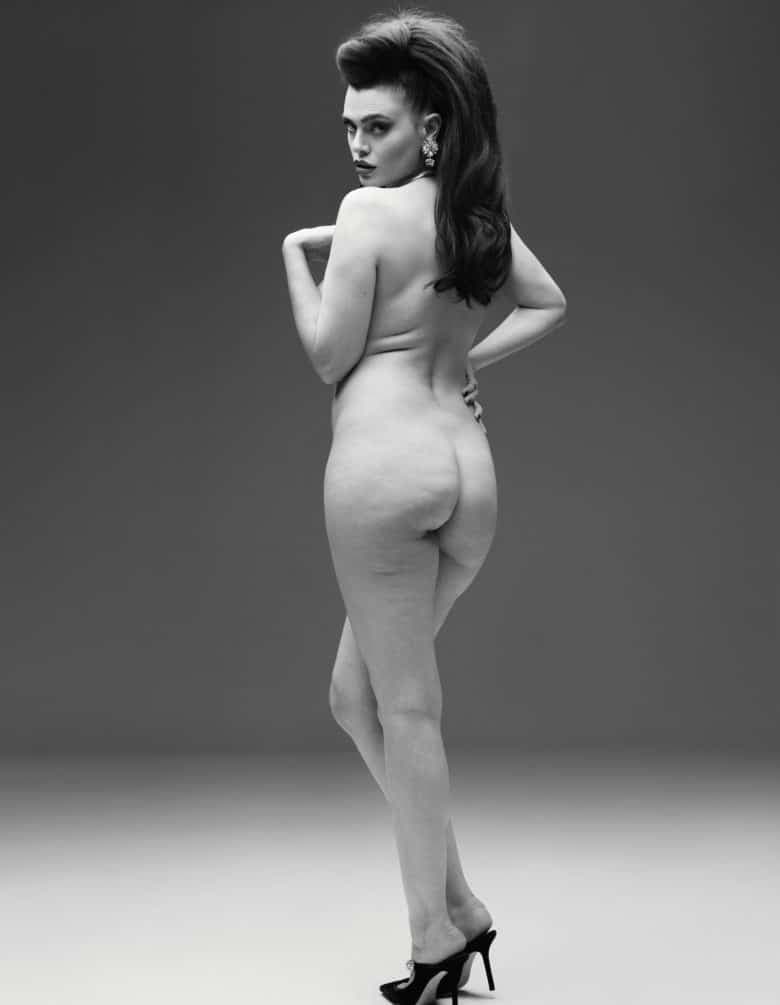
CH: I think the fashion industry especially is developing. I think that people forget how influential the fashion industry is on the way that women see their bodies. If you pick up a magazine when you’re 12 and every single image is of a white, super skinny woman, that is going to slowly infiltrate your mind and make you start asking yourself why you don’t look like that. I first became aware of the body positivity movement when I moved to America, and I was like ‘why is England not doing this?’ because at the time, England was only doing curvy things in really shitty catalogues or very commercial things. We have been a bit slower. It’s amazing now that we are seeing more representation. It’s weird because it’s a world of extremes. You’ve had the super skinny phase, and then you’ve had the models who were very curvaceous, then you’ve got the girls in-between. I just hope it’s not a trend. I hope it is here to stay.
RC: With having such a large following, do you ever feel a level of responsibility in being a role model for women?
CH: When you are a model, you have to be an activist and stand for something, whether it is about the planet or about women’s rights, or body positivity. Being a model now isn’t enough, you have to stand for something. Sometimes, and I think most people feel this way, [you think about] this horrible cancel culture and [you’re] sometimes worried about saying the wrong thing. I don’t want to get to that point because I know I’m not racist, or anything like that. If you are a racist person and you put up racist shit, you absolutely deserve to be cancelled and not work again, but I have seen girls who have written something 10 or 12 years ago on Facebook and had modelling jobs pulled from them because they said one thing that doesn’t match up with them now. It’s weird but I do think that it comes with some responsibility and it is important to be mindful of that.
RC: Do you think the fashion industry has improved much since you first started out?
CH: It has come on leaps and bounds. I think models are starting to have more of a voice when it comes to things like Me Too, because when I look back at some of the incidents that I found myself in with weird men, it is just shocking. You can’t believe it happened. Now you have the model alliance in New York which is a union, so I don’t think girls are as scared to go to their agents [if they’re uncomfortable].When I started out, Jesus Christ, the stories I could tell you. I remember when Me Too just came about, something happened with this weird photographer, and I went to my agent and they finally listened, but three years prior to that, I had been sat in a casting with a guy who had been really weird, playing with my hair and touching my face and legs, and they made me go to another casting with him! So things are changing in that regard. It just needs to happen quicker. People need to realise that modelling isn’t just a fairytale world, it is actually a job and people need to be treated with respect.
RC: Finally, what does beauty mean to you?
CH: Beauty is not caring about what people think, because once you gain that confidence and you start to really embrace who you are and the flaws that society has taught you to hate, your inner beauty will come out and shine. I don’t think beauty is always an aesthetic thing, it’s about who you are as a person.
